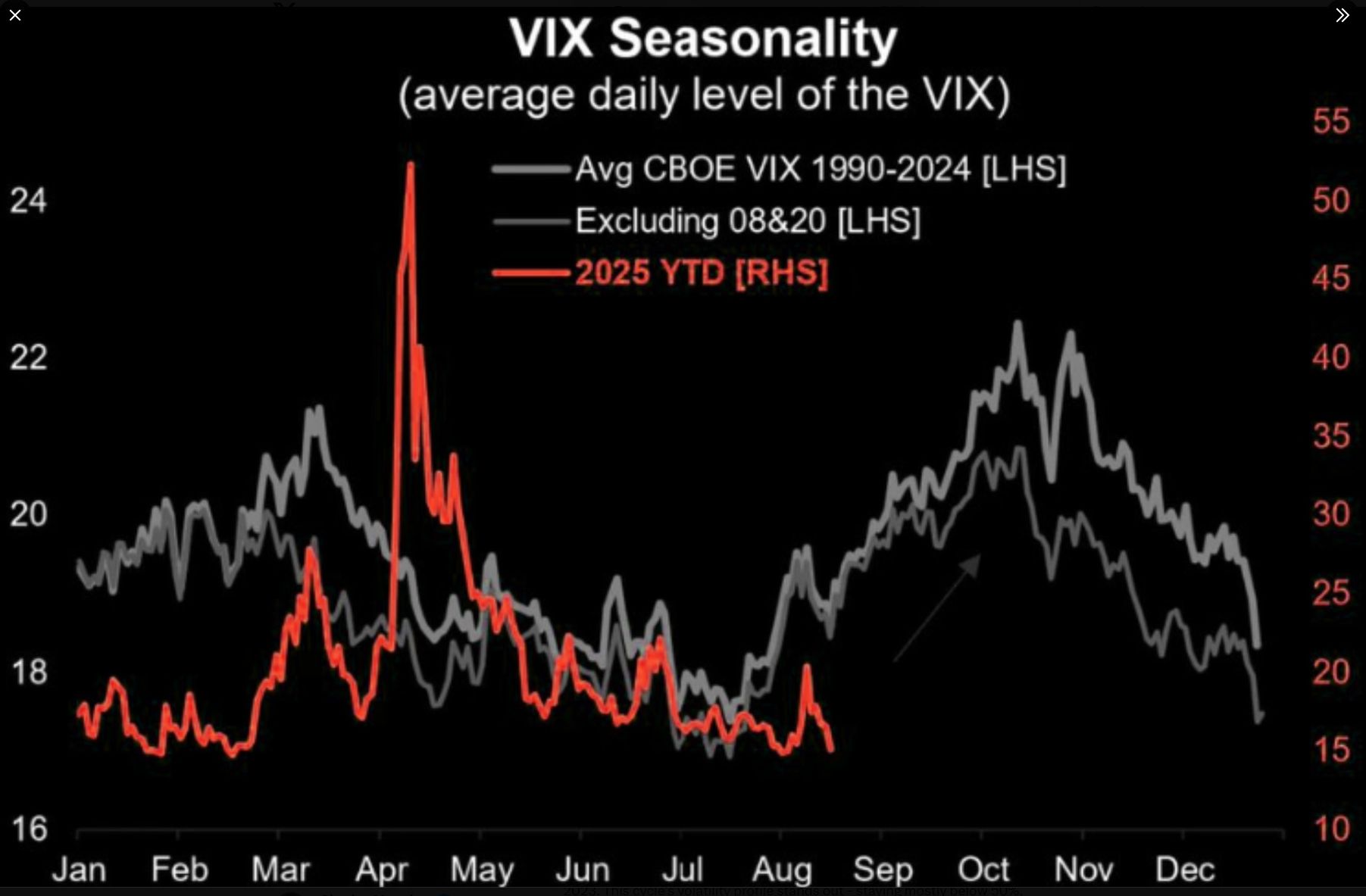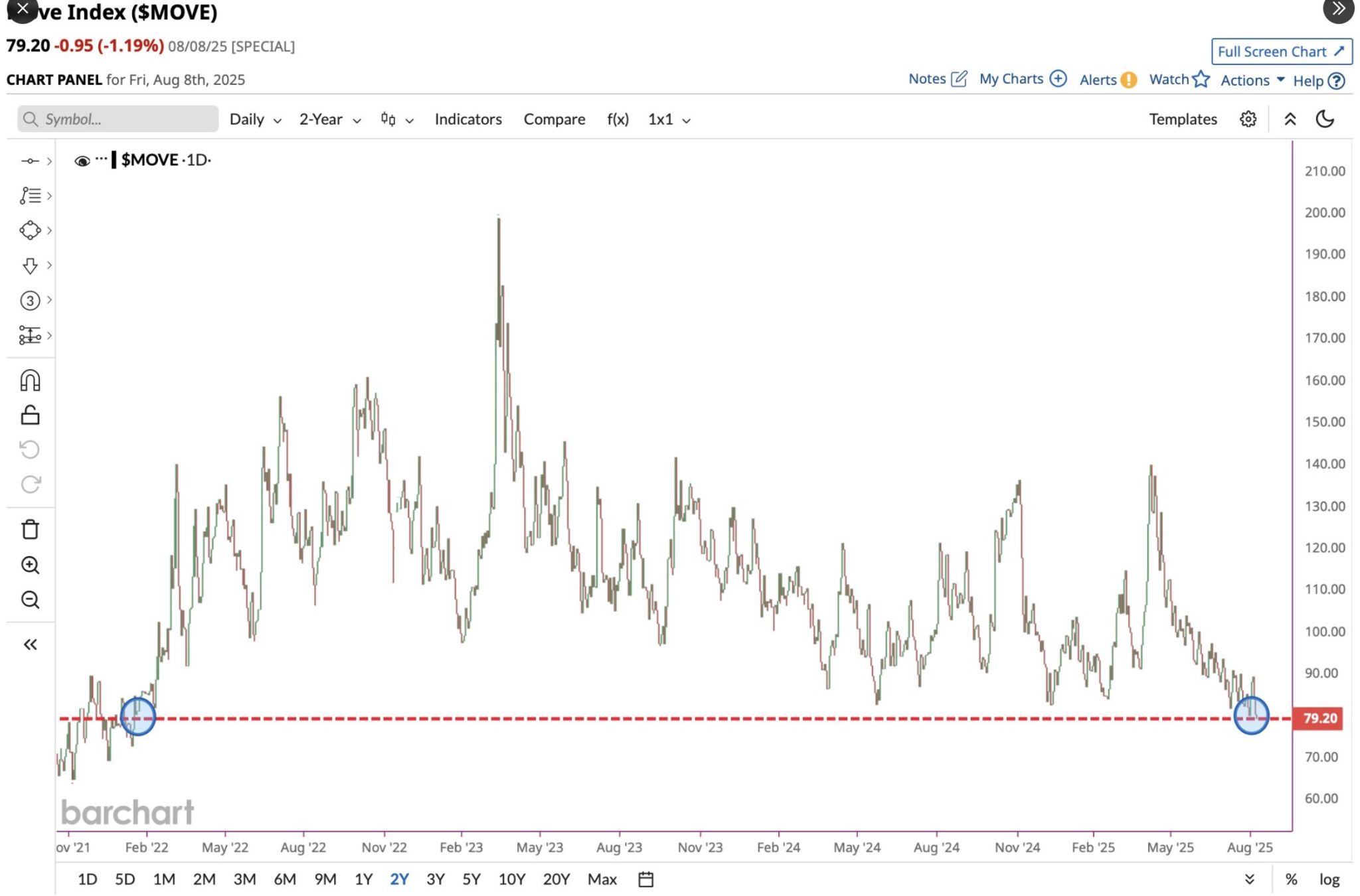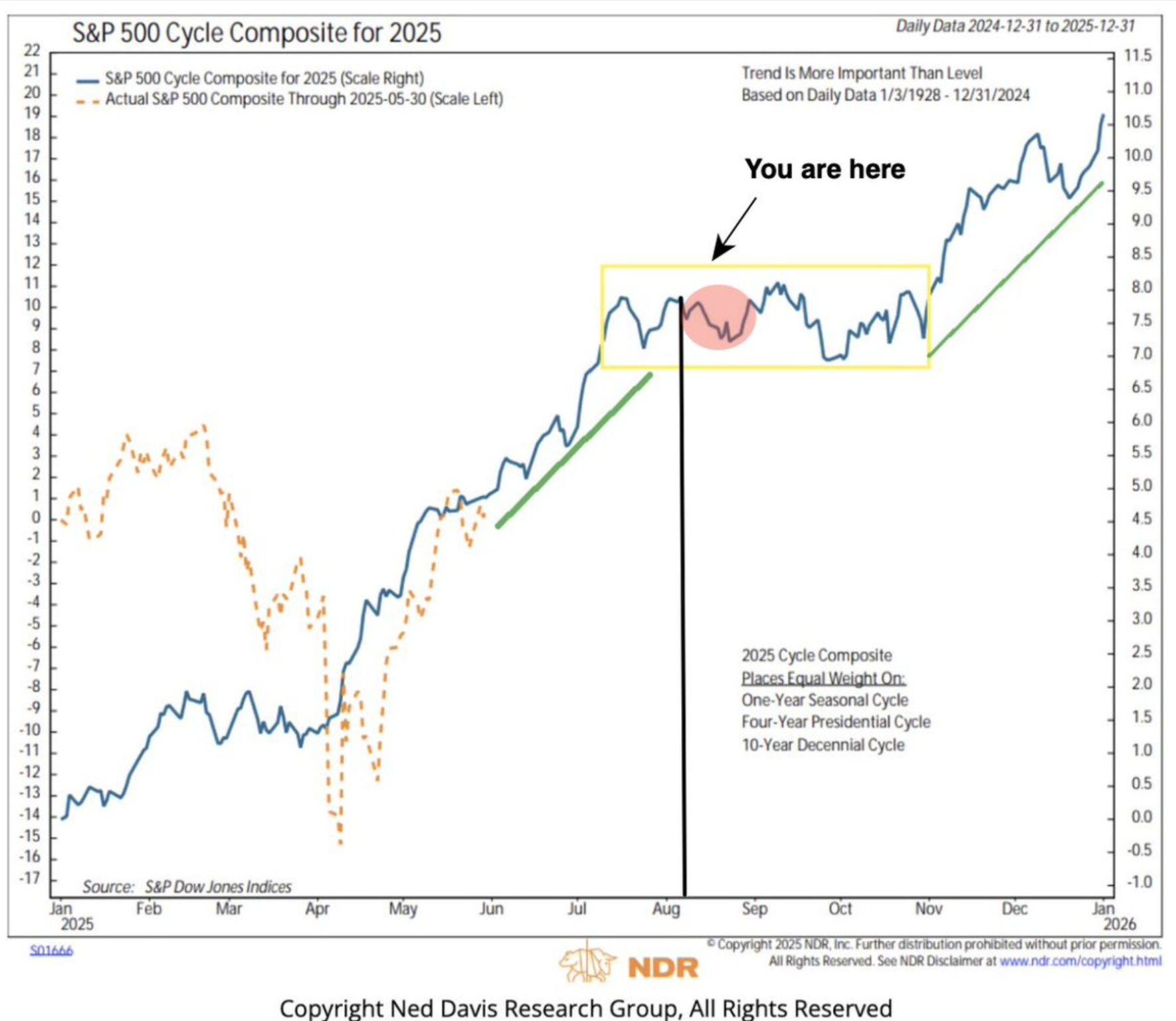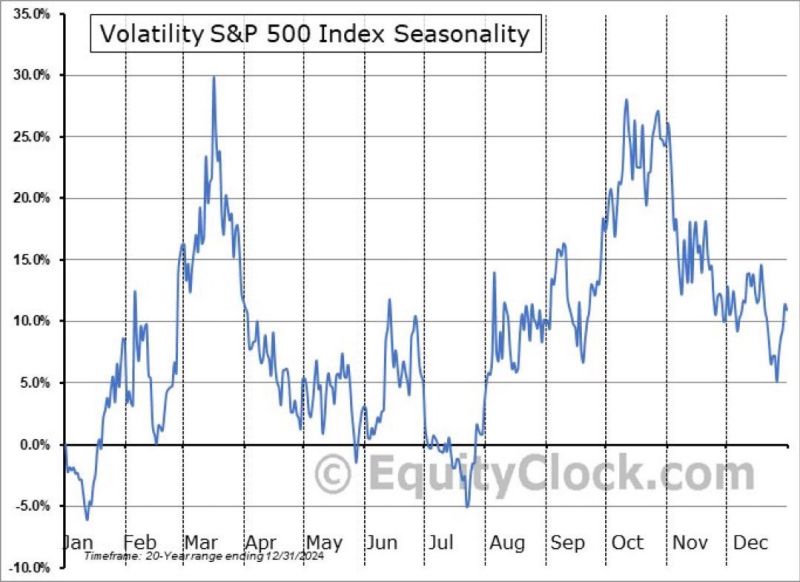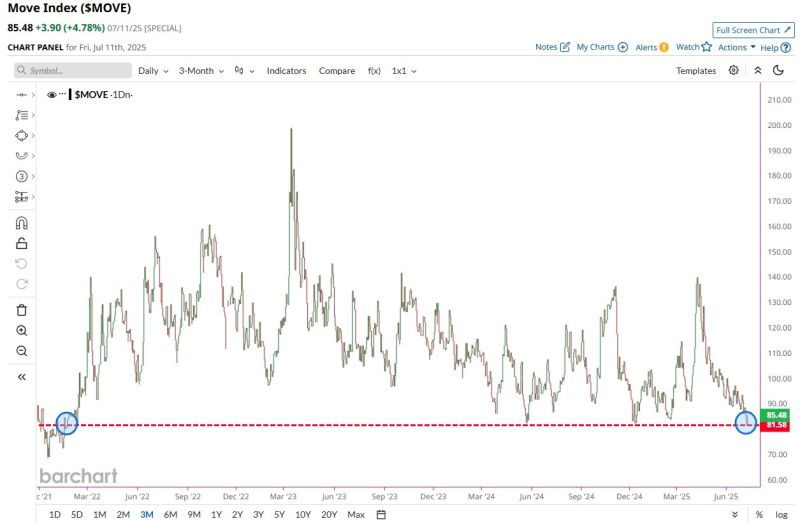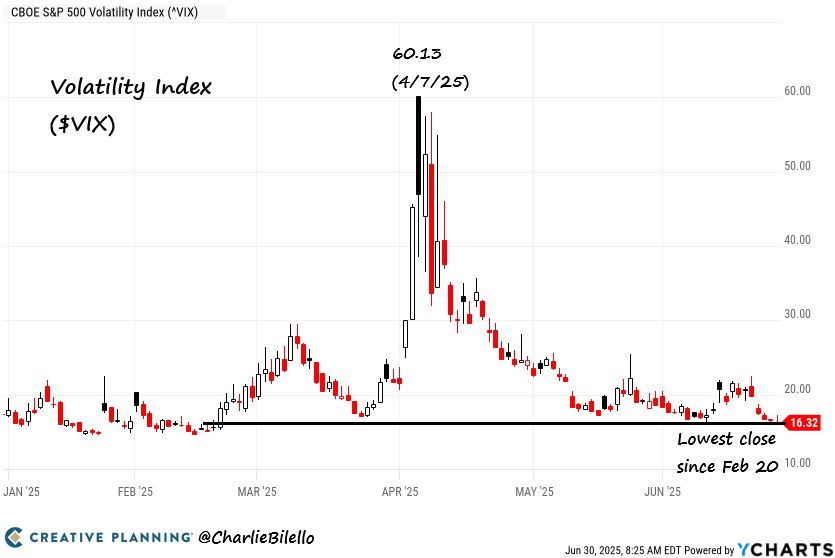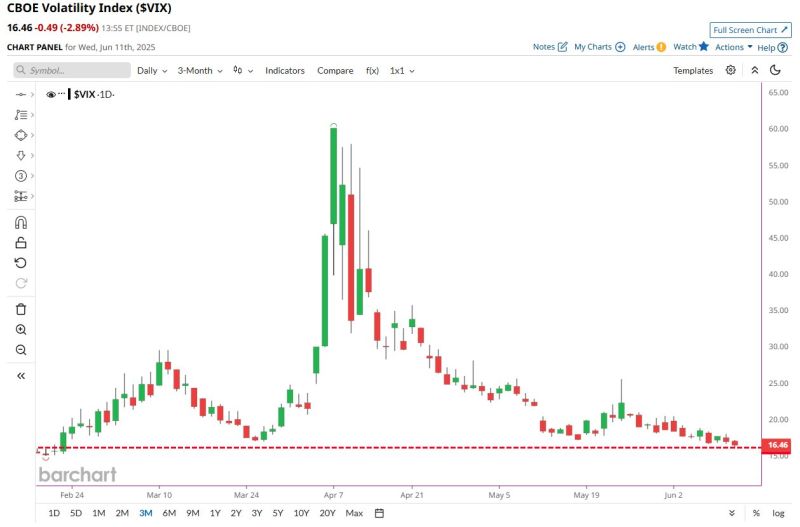Straight from the Desk
Syz the moment
Live feeds, charts, breaking stories, all day long.
- All
- equities
- United States
- Macroeconomics
- Food for Thoughts
- markets
- Central banks
- Fixed Income
- bitcoin
- Asia
- europe
- investing
- geopolitics
- gold
- technical analysis
- Commodities
- Crypto
- AI
- Technology
- nvidia
- ETF
- earnings
- Forex
- china
- Real Estate
- oil
- banking
- Volatility
- energy
- magnificent-7
- apple
- Alternatives
- emerging-markets
- switzerland
- tesla
- United Kingdom
- Middle East
- assetmanagement
- amazon
- microsoft
- russia
- ethereum
- ESG
- meta
- Industrial-production
- bankruptcy
- Healthcare
- Turkey
- Global Markets Outlook
- africa
- Market Outlook
- brics
- performance
The 69% decline in the $VIX over the last 20 weeks is the biggest volatility crash in history.
Source: Charlie Bilello
Isn't this the time of year when volatility typically picks up?
Source: Lance Roberts
U.S. Treasury volatility falls to its lowest level since January 2022
No Fear left in the market! Source: Barchart
After getting off course in Q1, $SPX has been trending well with the Cycle Composite since.
Will we see a pick up in volatility in the week ahead, in-line with historical cycle? Source: NDR thru Seth Golden
$VIX seasonality last 20 years.
If we are to see a spike, should be any day now. Just simply basing off seasonality. Source: Heisenberg @Mr_Derivatives
Treasury Rate Volatility $MOVE falls to lowest level since January 2022
Source: Barchart
The lowest close since February 2020 for the VIX index
Source: Charlie Bilello
CBOE Volatility Index $VIX falls to lowest level since February
No Fear Left in the Market Source: Barchart
Investing with intelligence
Our latest research, commentary and market outlooks



